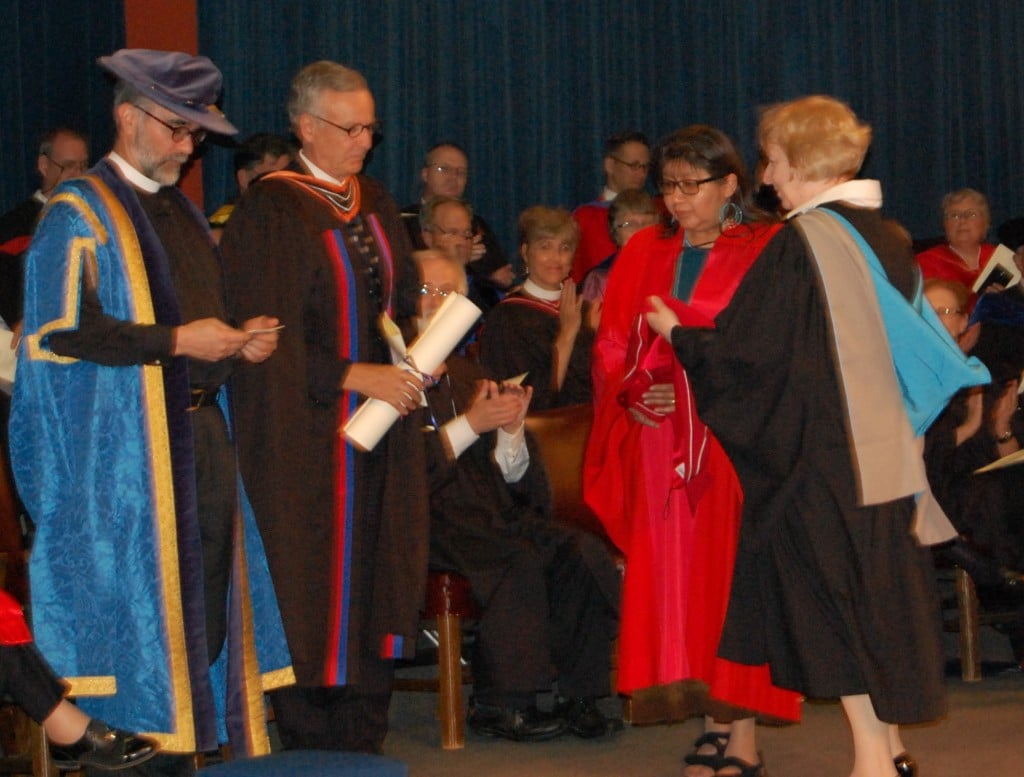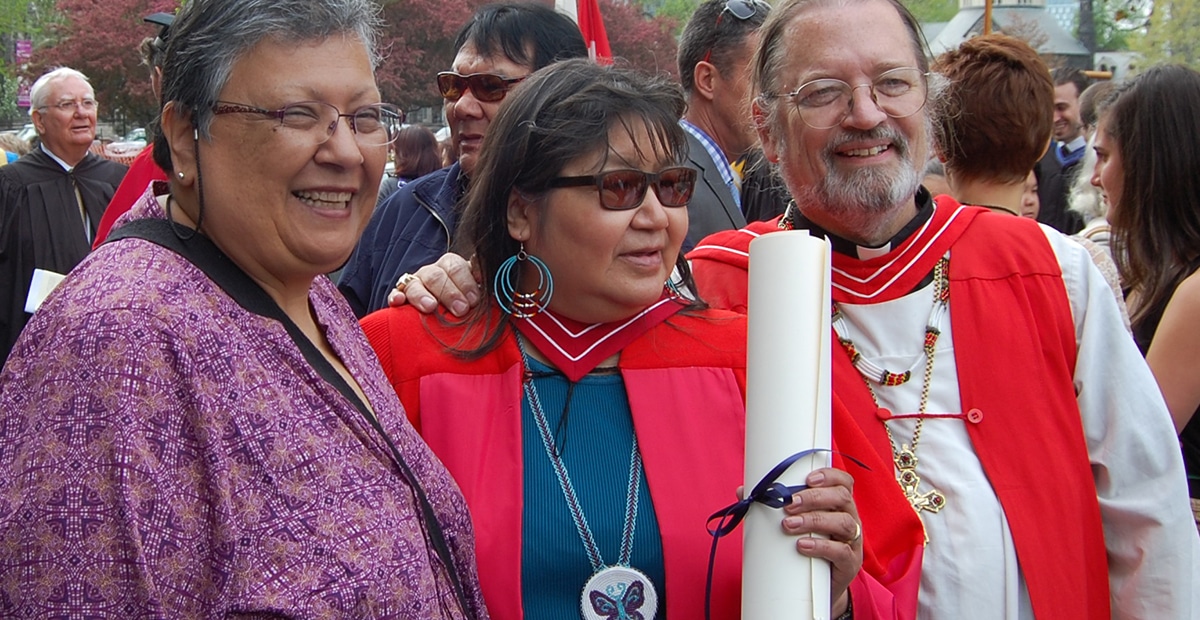The Rt. Rev. Lydia Mamakwa, Bishop of the Indigenous Spiritual Ministry of Mishamikoweesh, has received an honorary doctoral degree from Wycliffe College at the University of Toronto.
Bishop Mamakwa accepted the degree—Doctor of Divinity—on Monday, May 11 at the college’s annual convocation ceremony, where she addressed more than 35 graduates from the Class of 2015 and their friends and family.
“I feel very happy to be amongst these people here, and I really admire the graduates that worked so hard to get their degrees,” Bishop Mamakwa said afterward.
“For me to be a part of their convocation, I feel really blessed to be part of that. So I give thanks to God.”
National Indigenous Anglican Bishop Mark MacDonald presented Bishop Mamakwa with the honorary doctorate. Referring to her as an “inspirational” leader, he called the degree both “a great honour for her” and “a great honour for Indigenous people.”
In his remarks, Bishop MacDonald asked the audience to consider the deeper significance of the moment.
“I think that we could say that Lydia, more than any other person, is an icon of God’s future for the church in Canada—that she reveals a trajectory of the living word of God in life that shows to us what God wants for us,” he said.
“That’s not just a revitalized Indigenous church,” he added. “But it’s a new church, a new people of God, touched by God’s power and by God’s grace.”

Upon accepting the honorary doctorate, Bishop Mamakwa addressed the Class of 2015 and congratulated them on their graduation.
Much of her address took its inspiration from Romans 12:1–8, a biblical passage that had stuck with Bishop Mamakwa from an early age, in which Paul acknowledges God’s mercy and exhorts the faithful to offer their bodies as living sacrifices.
“Paul tells us not to conform to the pattern of this world,” she said, “but tells us to be transformed by the renewing of our minds.”
Recalling her upbringing in a one-room cabin with her grandparents—both devoted Anglicans—Bishop Mamakwa noted how her grandfather would lead morning and evening prayers using the Cree version of the Book of Common Prayer, originally translated by the first bishop of Moosonee.
While she herself spoke Oji-Cree, Bishop Mamakwa remembered being fascinated as she listened to the prayers read from the Cree prayer book.
“It was as if my grandparents were speaking another language to converse with their Creator,” she said, noting that she went on to use the Cree prayer book in her own prayers.
“God puts people in our paths to lead us through their example—like my grandparents did,” Bishop Mamakwa said.
“As St. Paul’s letter says, we all have different gifts,” she added. “Through these different gifts, we learn from one another. We teach one another. We may come from different cultural and racial backgrounds, but we all belong to the body of Christ. Through this, we become the family of God. Families support and encourage one another. Thus, we do the same as the family of God.”
Speaking afterward, Bishop MacDonald described that diversity as part of the wider significance of Bishop Mamakwa’s honorary doctorate.
“I think what it says, really, is that the Indigenous part of the church is going to be an animating, energizing part of the larger church,” he said. “I think it says that there is a bright future ahead for us.”
Interested in keeping up-to-date on news, opinion, events and resources from the Anglican Church of Canada? Sign up for our email alerts .

